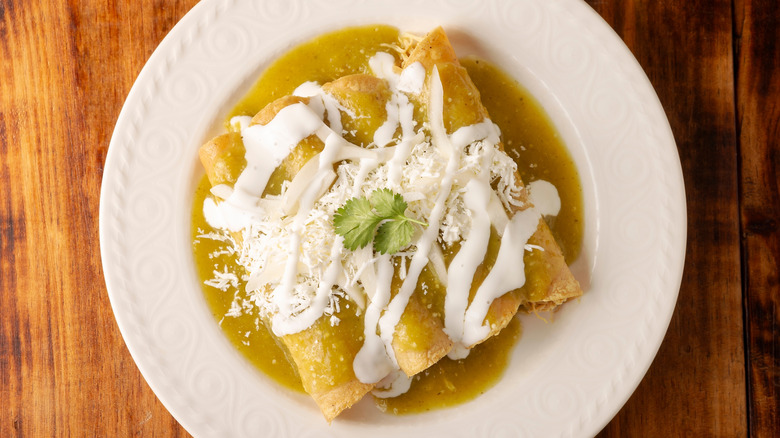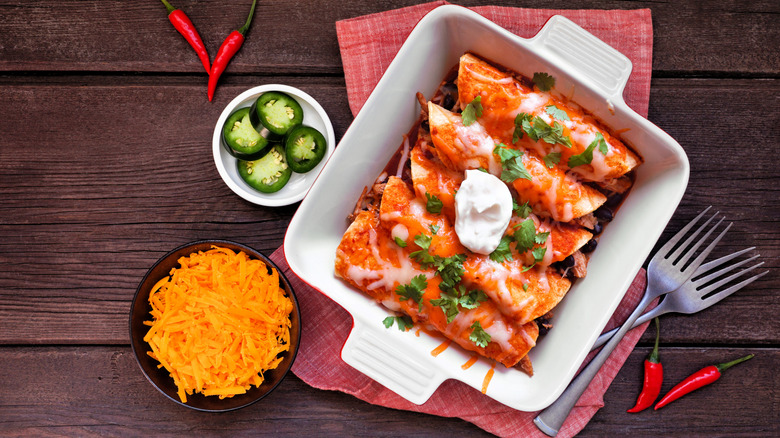How To Save Bitter Enchilada Sauce
Canned enchilada sauce is such a time saver. Sure, it's nice to leisurely whip up a batch of homemade oven-roasted salsa verde and mix it with chicken broth for scratch-made enchiladas, but if you feel like you're always running behind, you might want to take a few shortcuts like using frozen burritos for the easiest enchiladas, or — yes — using store-bought sauce. Occasionally, however, you might open up a can of sauce that tastes a bit bitter. According to chef Justin Mosel, the culinary director at Rubio's Coastal Grill, "Metallic or bitter tastes come from the pressurized or retort process used in canning food." (Fun fact: The reason canned food comes in a ribbed tin is to help withstand this pressure.) Mosel did, however, suggest a few steps to help de-bitter your sauce.
Fresh produce will help to take away some of the bitter flavor, and Mosel noted that sweet onions, lemon juice, or cilantro would all do the job. He also recommended adding olive oil and advised extending the heating time. As he explained, "Cooking down the sauce also helps to [get] rid of the bitter tones."
Sweet mix-ins to tame your canned enchilada sauce
If you don't have any fresh aromatics on hand, and extra cooking time just isn't cutting it, Justin Mosel offered a few more ideas to take the bitter taste out of your enchilada sauce. "Adding flour will thicken and soften the sauce, so ... it helps with bitterness," he said. He also recommended adding some type of sweetener. "Using sweet fresh produce or fruit will help to offset bitterness," he told us. A small amount of sugar or honey will also do the trick. For a low-calorie option, Mosel suggested trying granulated monk fruit; but be aware that some people may find monk fruit sweetener to have a bitter flavor of its own.
As for how to add these elements to your enchilada sauce, it depends on which one you're using. Flour should be stirred into a slurry with a small amount of cold water before being mixed into the warm sauce, whereas sugar will dissolve right away. Lemon juice should be added when the sauce comes off the heat, since if you cook it for any length of time, it can become bitter, too. Cilantro is also best as a last-minute addition, but onions may need to be first sliced and sautéed before being blended into the sauce. You can do this with either an immersion blender or an upright one, but if you're using the latter, be sure to let the sauce cool down a bit so it won't splatter.

